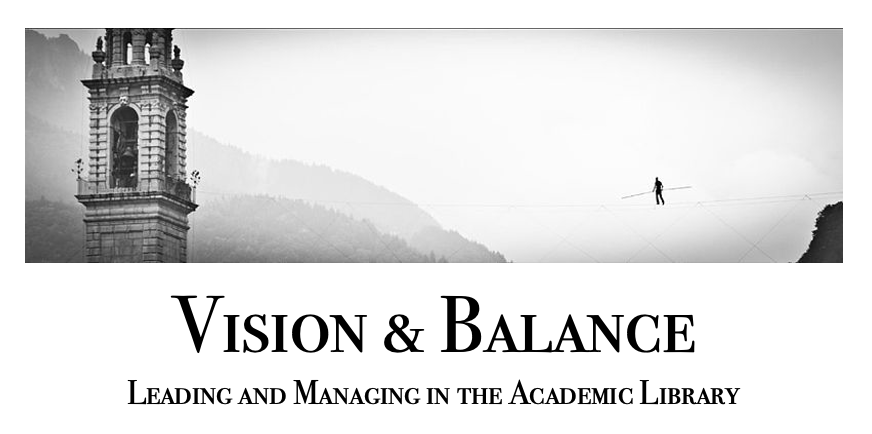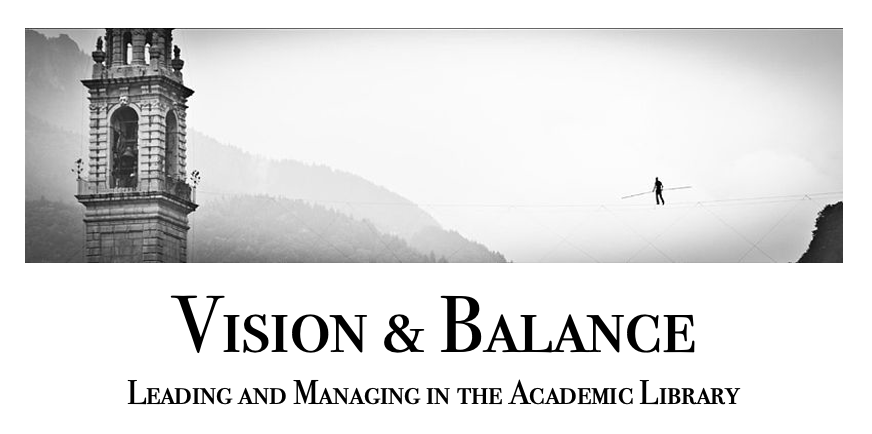Two Kinds of Organizational Problem, Part 1: Flies and Sledgehammers
In the first part of a two-part post, we discuss why it really is important to think about efficiency in the library -- even if that seems like a foreign concept to us.

In this two-part post, I'm going to address two of the most common organizational problems I've encountered over the course of my career. The first one is what I call "killing a fly with a sledgehammer." The second will be about "posts and beams."
To understand and address the "flies and sledgehammers" problem, you need to have internalized the difference between efficiency and effectiveness. Effectiveness is a measure of the degree to which your task has been accomplished: simply put, if your approach to the task resulted in its completion, then your approach was effective. Efficiency is a measure of how much expense (time, effort, money, etc.) went into your completion of the task. In other words, if you put more time, effort, money, etc. into completing the task than was actually needed, then your approach was inefficient – even if it was effective. Effectiveness tends to be a more or less binary measure: either the task is completed or it isn't. Efficiency, however, is a spectrum measure: one's approach to a task will be more or less efficient.
What does this have to do with leadership in libraries? Lots. In fact, thinking about (and making judgments on) questions of both effectiveness and efficiency is one of the most fundamental things you do as a leader, and you do it pretty much every day.
As a leader, you will have people coming to you constantly with proposals: proposals for new policies, new programs, new workflows, new hires, etc. You will also have them coming to you with proposals for the elimination or alteration of policies, programs, workflows, etc. And the questions you'll need to ask yourself and your team as you consider these proposals will center, importantly, on questions of both effectiveness ("will this work?") and efficiency ("will the benefit be worth the cost?"). In the library where I work, my team has probably gotten tired of me framing efficiency questions with these two metaphors:
"Is the juice worth the squeeze?"
and
"Are we killing a fly with a sledgehammer here?"
Sledgehammers kill flies very effectively, of course – but they require the investment of lots of strength, much more than is needed to kill a fly.
A few library-specific scenarios in which one would be wise to consider questions such as this include:
- Staffing distribution. Do you have the right number of librarians and library staff assigned to your various functional areas, or do you have too many working on deliverables for which there is little demand, or that do relatively little to further your mission?
- Workflows. Are you doing things in an inefficient way because someone with a strong personality insists that they be done that way? Do you have inefficient workflows that are a legacy of an earlier time, when technology was different? Are people simply doing things the way they've always been done rather than critically examining their workflows for possible efficiency gains? When was the last time you asked a division head to review the workflows in the departments she oversees, looking for practices that reflect a clear mismatch between "squeeze" and "juice"? (Note: it's important that workflows be reviewed by someone at least one level above the department or unit, because chances are good that the department manager or unit head is invested in the existing workflows.)
- Job requirements. Do all of your jobs require, for example, applicants to hold a bachelor's degree? If so, why? Is it possible that, at least in some areas, you're throwing too much expertise at work that doesn't require that much (or assuming that a bachelor's degree confers more relevant expertise than it does)?
- Budget allocations. Most libraries have such limited budgets these days that budget efficiency is hardly an issue; they're trying so hard to achieve baseline effectiveness with their scarce resources that waste is not really a problem. But particularly in academic libraries, there are always large or large-ish budgets that need to be monitored closely. We need to be careful not to get so hawkish about waste that we end up (ironically) investing disproportionate effort in ferreting out tiny problems, but leaders and managers should always be asking themselves whether library funds are being spent with as little waste as possible. Are we negotiating discounts effectively? Are we buying the right content and avoiding buying the wrong content? (Do we know how to distinguish between the two?) Are we saving money where we can on less-essential things in order to spend more on essential things? (Do we have a clear and shared understanding in the organization as to what things are more and less essential?)
As I discussed in an earlier post, we do need to be careful how we think about efficiency – it is not the be-all and end-all of library work. But it's also too easy to reflexively dismiss it. Library leaders and managers are stewards of institutional resources, and have both a professional and an ethical obligation to take good care of them. This means, among many other things, not wasting them.
Takeaways and Action Items
- Whether our tasks get accomplished is a centrally important concern; almost as important is the question of how much of our institutional resources were invest in accomplishing them.
- Efficiency is not everything; but it's a very important thing.
- Are there any policies, programs, or workflows in your library that you suspect reflect a bad ratio of "juice" to "squeeze"? How will you redress that imbalance? Who, on your leadership or management team, can you count on to help you get there?
